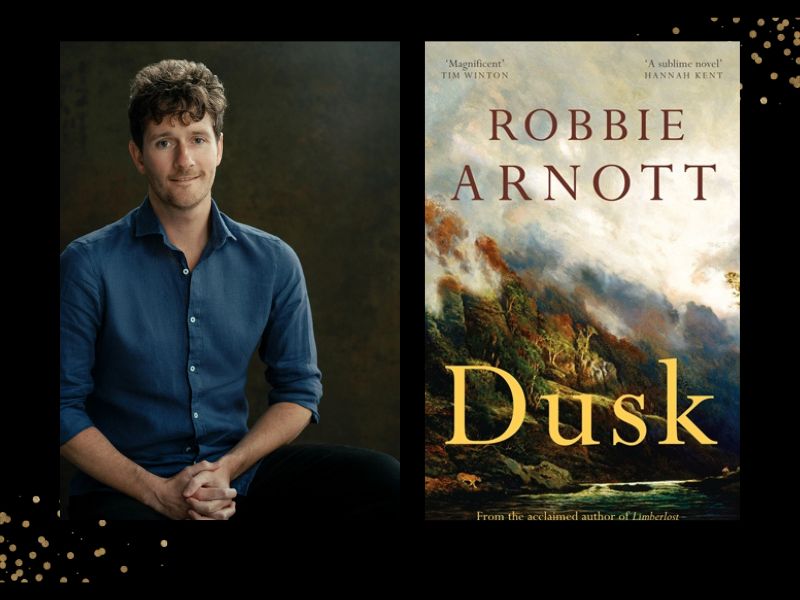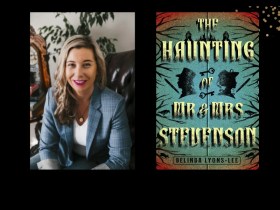Fans of Robbie Arnott will be delighted to know that Dusk, his fourth book, encapsulates his signature style and exemplifies why he’s been the recipient of several major literary awards. The novelist once again foregrounds the natural world in Dusk and braids its beauty and violence into a narrative bracing and propulsive.
It follows the misadventures of itinerant twins Floyd and Iris Renshaw, who’ve suffered a hardscrabble life. They decide to traverse the Tasmanian highlands in search of a South American puma – rumoured to be the last of its kind. Dusk, or so she’s called by the locals, has not only menaced and decimated livestock, but also taken the lives of several men who’ve been trying to capture her.
Once again, the folly of humans is writ large: pumas were originally introduced to control the deer population that was overzealously eating the propagated grasses, but they turned, instead, to the sheep. So now the graziers have offered a bounty on Dusk’s head and the penniless but ruthless twins are determined to be the ones who will be responsible for her demise. With steadfast horses, but sans rifles, they hope their wiles will lead them to her lair. They are not the only ones seeking to entrap her.
In this book, hunting is not the sole domain of the beast – the rapacious greed of humans is also granted purchase, and the terms ‘predator’ and ‘prey’ are slippery. Just when you think you know where Arnott is heading in terms of the plot, he abruptly changes direction and leads the reader down different terrain.
Dusk is an all-weather affair, tracking seasonal changes through sun, mist and snow. Arnott is rightly feted for the poetic timbre of his prose when it comes to describing flora and fauna, and he does so again in this novel. All throughout the pages there are instances of his elegance and keen eye for detail, with birds described as “pulses of feathered texture”, and Iris overwhelmed by the harsh but transcendent panorama, this “lung-emptying openness that bounced off the hard stone”.
Like Arnott’s earlier book, The Rain Heron, Dusk plays with mythical elements. All around the highlands are bones the provenance of which remains an unanswerable mystery. Are they the fossilised remnants of prehistoric creatures, ancient sea beasts when the plateau was once a seabed? The answer is moot, but their presence adds to the forbidding ambience of the landscape.
The narrative flows back and forth in time, moving from the twins’ current exploits to tracking their woebegone history with recidivist parents who passed on their criminality, and hence blighted the surname Renshaw, “a barbed gift delivered at birth”.
However, Dusk is also about love, about unbreakable sibling bonds. Despite or, most likely, because of their compromised upbringing, Floyd and Iris, now in their 30s, soon learn to forgo others and trust each other. Animal instincts are what they rely on to survive – “in their short lives, they’d scarcely stopped to focus on anything that didn’t feed, warm or protect them”.
Read: Book review: The Burrow, Melanie Cheng
As in Arnott’s previous books, Dusk once again maps his passion and curiosity for the natural and wild world around him and the interactions of humanity at large with the majesty, but also the tooth and claw of Mother Nature. This latest tale of survival – of both the puma and her desperate stalkers – will cement Arnott’s reputation as one of Australia’s finest storytellers.
Dusk, Robbie Arnott
Publisher: Pan Macmillan
ISBN: 9781761560941
Format: paperback
Pages: 264pp
Price: $34.99
Publication Date: 8 October 2024





